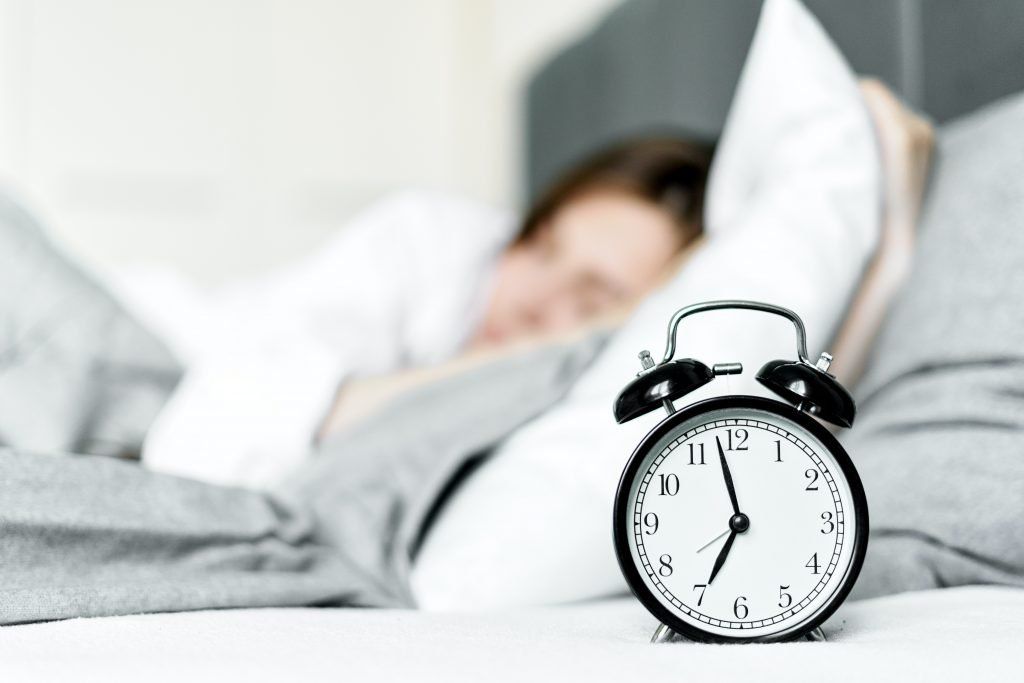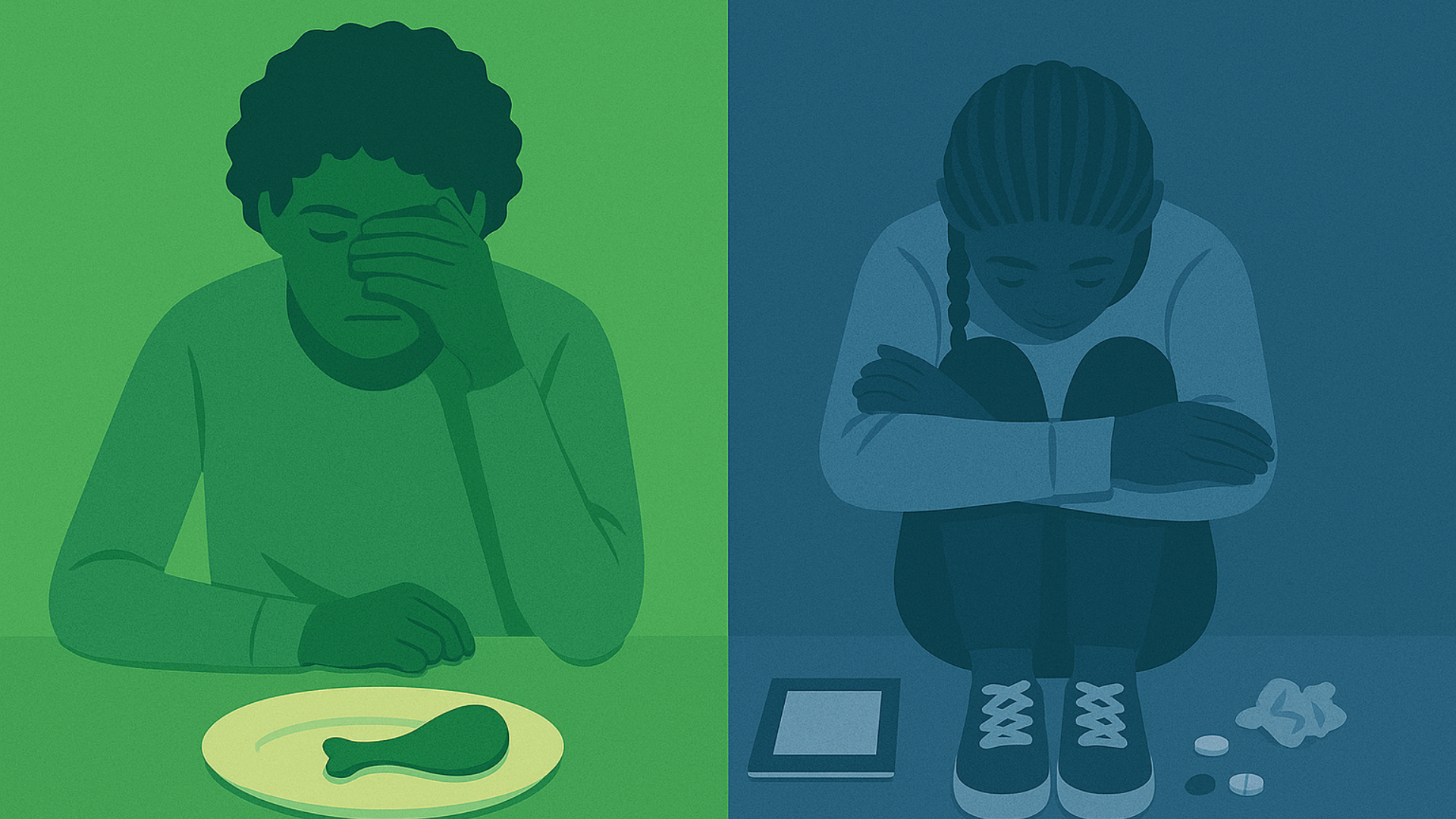Circadian Rhythms, Sleep Hygiene, and Well-Being: An Insightful Q&A With Thrive Wellness Reno Primary Care Physician, Internal Medicine Lorrie Oksenholt, D.O.

When working optimally, the body’s circadian rhythms cause individuals to feel sleepy around bedtime and refreshed upon waking. When disturbed by external or internal factors, circadian rhythms don’t function correctly, which can contribute to inadequate sleep. Mental, emotional, and physical health challenges can then arise. Below, dive into the topic of circadian rhythms in an insightful Q&A with Thrive Wellness Reno Primary Care Physician, Internal Medicine Lorrie Oksenholt, D.O.
What are circadian rhythms?
All living beings have internal clocks called circadian rhythms that regulate sleep and wakefulness. Just as pets tend to wake up earlier than their owners and many flowers curl their petals toward their buds in the evenings, humans instinctively follow natural sleep and wake patterns triggered by circadian rhythms. Circadian rhythms work at a cellular level in accordance with changing light throughout the day.
How do circadian rhythms function?
Changes in light signal the body to produce certain hormones that are helpful for sleeping and waking. The eyes and brain work together to initiate this hormone production. The suprachiasmatic nucleus located in the brain’s hypothalamus responds to light and dark indicators from the eye’s retinal nerve. These fluctuations in light and dark trigger the body to produce cortisol in the mornings and melatonin in the evenings. Cortisol helps increase energy, heart rate, and body temperature which benefit waking. Melatonin serves as the body’s sleep-inducing hormone and promotes relaxation, although its exact mechanisms are not fully understood.
How do circadian rhythms change over a lifetime?
Circadian rhythms change during infancy, adolescence, and elderly years.
- Infancy: When babies are born, they don’t have consistent sleep and wake patterns. Instead, they sleep up to 18 hours a day at various intervals. When they reach around four to six months old, babies begin to develop circadian rhythms that allow them to sleep more throughout the night.
- Adolescence: Many adolescents develop “sleep phase delay” which occurs when their bodies produce melatonin later in the evening than typical. This physical phenomenon might help explain why many teenagers tend to stay up late and have difficulty waking up.
- Elderly years: During the aging process, circadian rhythms become less reliable. In general, elderly people tend to experience both sleepiness earlier in the evening and wakefulness earlier in the morning. Additionally, hormonal changes associated with aging, such as menopause in women, can frustrate sleep.
How can circadian rhythms become disrupted?
In a perfect world, circadian rhythms would allow individuals to rise in the morning with energy to perform daily tasks and then wind down as the evening darkens so that falling asleep occurs easily at bedtime. Without disruption, this process would repeat daily. However this is, of course, not always the case. Instead, circadian rhythms can become interrupted by external circumstances. Some interferences to circadian rhythms include:
- Changes in daylight: Daylight savings time, traveling through time zones, and seasonal weather oscillations can affect the body’s responses to light and dark. These disturbances can cause irritability, daytime sleepiness, and difficulty concentrating.
- Alternative schedules: Any work, school, or other obligatory schedules that fall outside the hours of 7 a.m. and 6 p.m. can impact circadian rhythms. This is especially the case for those who work shifts in the early mornings or late nights. Because these schedules don’t align with the body’s biological fluctuations, they can cause trouble sleeping and impede individuals’ ability to perform tasks effectively.
- Artificial light: Urban light pollution, light from screens and electronics, and light from inside individuals’ homes can impact sleep quality by confusing the body’s responses to natural daylight and darkening cadences. Those who experience insomnia may be highly sensitive to artificial light. These individuals as well as anyone with sleep struggles may consider removing electronic devices from their bedrooms, dimming their lights inside the home in accordance with the darkening sky, and refraining from screen time during the evening.
- Stress : As part of the body’s instinctual fight-or-flight response, it shuts down the circadian rhythm sleep signal when stressed. While this mechanism is helpful if survival is threatened, stress from daily life can cause unnecessary sleep issues and resulting sleeplessness.
How can discordance in circadian rhythms impact well-being?
After losing only a single night’s sleep, it’s common for individuals to be less effective at carrying out physical activities, completing cognitive tasks, and regulating their emotions. When circadian rhythms are upset and sleep quality consequently suffers for extended periods of time, the effects of inadequate rest on physical, mental, and emotional health are magnified. A prolonged inability to achieve good sleep can lead to heart and immune system problems, trouble concentrating, and increased irritability, as well as symptoms of depression and anxiety .
How can individuals maintain their circadian rhythms?
Practicing good sleep hygiene and sleep-promoting self-care strategies can help one avoid many sleep disruptions while reinforcing their natural circadian rhythm. Some ways to incorporate these into your routine include:
- Going to bed and waking up at the same time every day. Adhering to a regular schedule for going to sleep and waking up can help regulate circadian rhythms.
- Exposing yourself to sunlight. Sunlight can help promote wakefulness by reinforcing the body’s light signals to stimulate cortisol production. When the sun begins to set, the body is able to easily contrast the previous sun exposure with the darkening evening, so that it readily begins producing melatonin.
- Making time for daily movement: Thirty minutes of physical activity daily can help release pent-up energy that may contribute to restlessness. Physical activity does not have to be rigorous exercise to be beneficial. Mindful movement can promote a healthy circadian rhythm among many other perks.
- Practicing mindfulness : Meditation, gentle yoga, and breathing practices can help reduce stress and tension that may be impeding your ability to sleep well.
- Avoiding certain substances leading up to bedtime. Limiting caffeine and alcohol intake in the afternoon and evening can promote restful sleep.
- Considering the time that you take any medications. Discuss with your medical provider whether any medications you’re taking might impede your sleep and would be better to take in the morning rather than at night.
- Seeking primary care support. Speaking with your medical provider about struggles with your circadian rhythm can help determine whether there are any underlying medical conditions, such as sleep apnea or thyroid problems .
- Seeking mental health support: Attending therapy can provide insight on whether any mental health conditions may be contributing to upset in your circadian rhythm. Mental health providers can implement evidence-based therapeutic interventions, such as cognitive behavioral therapy (CBT), which can be beneficial for reducing sleep-interfering thoughts and behaviors before bedtime.
THRIVE HERE
By obtaining clinical support, individuals can reset their sleep and wake cycles, improve their sleep quality, and boost their daytime effectiveness. Thrive Wellness’ interprofessional team provides integrated care for physical, mental, and emotional health concerns. Our specialists can help you uncover the roots of sleep-related challenges and improve your health holistically so you can embrace your full potential every day. Reach out to learn more about our outpatient services as offerings vary by location.
About the Contributor
Thrive Wellness Reno Primary Care Physician, Internal Medicine Lorrie Oksenholt, D.O.
After earning a bachelor’s degree in foods and nutrition at Walla Walla College in Washington state, Dr. Lorrie Oksenholt attended medical school at the University of Missouri-Kansas City where she obtained her medical degree as a doctor of osteopathic medicine. She completed her internal medicine residency through the University of Nevada, Reno where she also served as a clinical professor of medicine in both inpatient and outpatient settings. Additionally, Dr. Oksenholt worked as the chief of staff and acting medical director at Nevada Mental Health.
Dr. Oksenholt has been practicing internal medicine for over thirty years and has significant experience treating general health concerns as well as issues specific to women’s health and men’s health, respectively. Throughout her career, she has worked closely with clinical specialists to treat mental and behavioral health issues, including eating disorders. She is passionate about a whole-person approach to health care that addresses the mind, body, and heart for overall well-being. As an internal medicine physician at Thrive Wellness Reno, Dr. Oksenholt finds fulfillment in working alongside caring clinicians to foster holistic health for patients. She strongly believes in the power of preventative medicine and is committed to collaborating with those in her care to achieve optimal health.
Outside of her practice, Dr. Oksenholt enjoys taking advantage of the abundance of outdoor activities that Northern Nevada has to offer. She and her husband enjoy spending time together as well as with their children and grandchildren as often as possible. Dr. Oksenholt has many hobbies including glasswork, jewelry making, and quilting.








